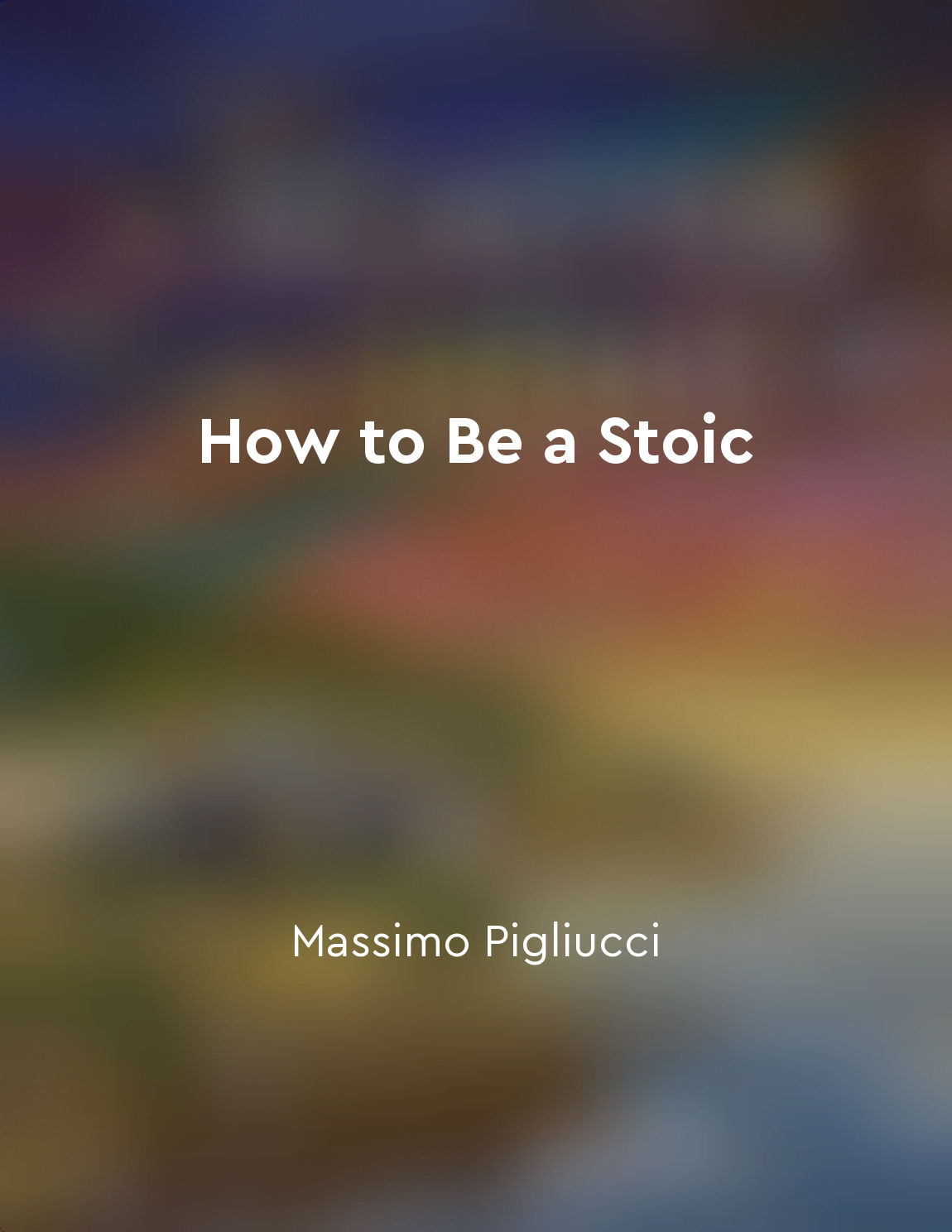Stoicism emphasizes the importance of personal responsibility from "summary" of The Stoic Life by Tad Brennan
Stoicism places a significant emphasis on personal responsibility, viewing it as a fundamental component of living a virtuous life. The Stoics believed that individuals have the power to control their thoughts, emotions, and actions, and thus are responsible for their own well-being and moral character. This perspective is rooted in the idea that each person possesses the capacity for reason and rationality, and therefore has the ability to make conscious choices that align with virtue. According to Stoic philosophy, personal responsibility entails taking ownership of one's thoughts and behaviors, as well as accepting the consequences of one's actions. This means being mindful of one's judgments and impulses, and actively striving to cultivate wisdom, courage, justice, and temperance in all aspects of life. By focusing on what is within our control and directing our efforts towards living in accordance with reason and nature, we can achieve a state of inner peace and moral excellence. Furthermore, Stoicism teaches that external circumstances and events are beyond our control, and that true freedom lies in our ability to choose how we respond to such challenges. Rather than blaming others or external factors for our experiences, Stoics advocate for taking responsibility for our reactions and attitudes towards adversity. By practicing self-discipline, resilience, and self-awareness, we can navigate life's ups and downs with equanimity and integrity.- Stoicism encourages individuals to lead a life of virtue and moral integrity by recognizing their autonomy and agency in shaping their character and destiny. Through self-examination, self-discipline, and self-improvement, one can fulfill their potential as a rational and virtuous being. This emphasis on personal responsibility serves as a guiding principle for Stoics in their pursuit of eudaimonia, or flourishing, and their commitment to living a life in harmony with nature and reason.
Similar Posts
Greek philosophy sought to understand the nature of the universe and human existence
Greek philosophy was not just a series of abstract speculations. It was, in essence, an attempt to make sense of the world and ...
The Stoic concept of "duty" emphasized fulfilling one's responsibilities
The Stoics believed that each individual has a specific role to play in the world, and that this role comes with certain respon...
Philosophy and art converge in the exploration of emotion
The intertwining of philosophy and art in the examination of emotion is a central theme in Risinger's work. Rather than viewing...
Stoics see setbacks and challenges as opportunities for growth
The Stoics believed that setbacks and challenges were not to be seen as obstacles, but rather as opportunities for growth. They...

Embrace adversity as an opportunity for growth
When faced with adversity, it is natural to feel discouraged or overwhelmed. We tend to view challenges as obstacles that hinde...

Adversity is seen as an opportunity for growth in Stoicism
In Stoicism, adversity is viewed as a chance for personal development and growth. Rather than being seen as something to be avo...
Stoicism teaches the importance of selfreflection
The Stoics believed that self-reflection was a crucial practice for achieving wisdom and leading a virtuous life. By taking the...

Virtue is the only true good in Stoicism
In Stoicism, the fundamental idea is that virtue is the sole good. This principle is central to the Stoic philosophy, guiding e...

Stoicism encourages us to focus on what truly matters
Stoicism teaches us to distinguish between what is within our control and what is not. By focusing our attention on what we can...
Stoicism encourages cultivating a sense of inner peace
Stoicism offers us a way to cultivate a sense of inner peace by teaching us to focus on what is within our control and let go o...

